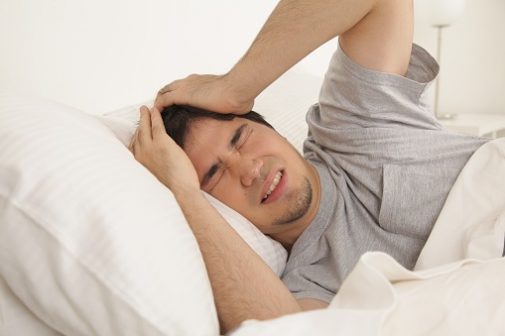Advocate Trinity Hospital issued the following announcement on Jan. 9.
If counting farm animals isn’t doing the trick when you are trying to fall asleep, then you may have a baaaaad problem on your hands.
Experts say a vicious cycle can start if the underlying issue of sleeplessness — commonly stress — is not addressed in its early stages.
Trouble falling asleep or waking up overnight and not being able to go back to bed can both be linked to anxiety. When the room gets quiet and bodies are inactive, stressful thoughts and fears often start to creep in. If these occurrences become constant, anxiousness, dread or panic at the prospect of not sleeping can be overwhelming.
The National Sleep Foundation says anxiety and insomnia feed off each other, creating a vicious cycle.
Multiple studies have looked at the connection between stress and lack of sleep. One study involved 2,316 participants with no history of insomnia. Participants reported the number of stressful events they faced, as well as the amount of interfering thoughts they experienced in response to each stressor. The study found that stressful events and stress-induced thoughts were significant predictors of risk for insomnia just one year later.
Another study surveyed 117 college students on sleep and stress and discovered that susceptibility to stress-related sleep disturbances is a predictor for insomnia.
“Some people are born with a predisposition to be poor or light sleepers and are therefore more affected by stress, leading to fragmentation of sleep,” says Dr. John Burr, an Advocate Heart Institute pulmonologist and sleep specialist at Advocate BroMenn Medical Center in Normal, Ill.
Light sleepers also have more problems falling and staying asleep, making them more likely to suffer side effects during stress-induced biochemical changes, he adds.
Stressors such as illness, work schedule changes and interpersonal conflict can lead to chronic insomnia. Sufferers of this disorder seem to be ill-prepared to deal with stress and experience an overproduction of stress hormones, such as cortisol and adrenaline. As a result, sleep is severely impaired and disrupted, Dr. Robert Rosenberg, an Arizona sleep medicine specialist said in a column on everydayhealth.com. Deep, slow-wave sleep is known to reduce the levels of these stress hormones, while wakefulness increases their production – thus, the cycle continues.
So what can you do to increase the likelihood of getting a good night’s rest?
Dr. Burr suggests daily exercise at least three hours before bed and eliminating nicotine and caffeine as a safe starting point for treatment. Maintaining a consistent bed and wake time is another healthy habit worth trying, as well as reducing mid-day napping. Try to put stressors behind you by writing them down along with solutions to the issues earlier in the evening, Dr. Burr says.
Finally, recognizing that lack of sleep may be related to how you deal with stress is the first step to a full night’s rest.
Original source can be found here.

Source: Advocate Trinity Hospital






 Alerts Sign-up
Alerts Sign-up